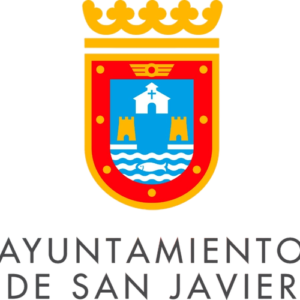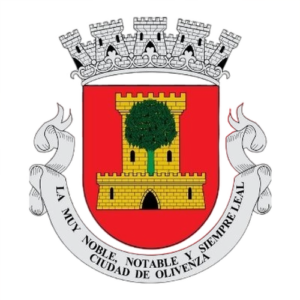
CCISB (Spain)
Founded in 1886, the Chamber of Commerce, Industry and Services of Badajoz (Cámara Badajoz) is a
Public Law Corporation established as a collaborative body of public governments. The Chamber’s
mission is to represent, promote and defend the general interests of the economic structure in its region.
The organisation operates within the Autonomous Community of Extremadura, with a population of about
1,100,000 inhabitants. Currently it represents – according to the report on “SMEs statistics” from the
Spanish Ministry of Industry, Energy and Tourism in February 2016- almost 40,000 enterprises and over
the 99,9% out of them are SMEs. Furthermore, in the last years, CDB has been one of the leading
Spanish Chambers in ERFD application. The Chamber counts with expertise in European funding
instruments for SMEs (INVEST HORIZON) and has specialized facilities for the operation of innovative
industrial schemes by firms, this is, “NAVE4”. In addition, it has to be noticed the close connections to
European and National Chamberal Systems and networks.
Way Sas di Teruko Kominato (Way), Italy
Way is an Italian women led company that conducts its economic activity in relation to promotion of rural
tourism and media projects in Sicily. Implemented projects related to this action and role in the project
related to the promotion and development of eco-rural tourism on the territory of the Metropolitan City of
Messina, alongside professional multimedia development and web-packaging of local businesses, products
and tradition. The most recent project was the publishing of a gastronomic guide for traditional Sicilian cuisine
and wines that was published in Japan. Way focuses its work around 70% on the Japanese market and 30 %
on the European market.
The company has experience in the implementation of EU funded projects, having the role as sub-contractor
in grants under the framework of the Europe for Citizens Programme, Erasmus + KA1 and KA2, Local funds
under the European Social Fund.
Comune di Lipari (Municipality of Lipari), Italy
Metropolitan City of Messina. It is the third largest city on the island of Sicily, and the 13th largest city in Italy,
with a population of more than 231,000 inhabitants in the city proper and about 650,000 in the Metropolitan
City. It is located near the northeast corner of Sicily, at the Strait of Messina
Lipari (IPA: ˈlipari, Lipari in Sicilian) is an Italian town of 12 414 inhabitants [3] in the metropolitan city of
Messina in Sicily.
Its municipal territory extends over six of the seven Aeolian islands: Lipari, Vulcano, Panarea, Stromboli,
Filicudi and Alicudi. Together with Basiluzzo, Dattilo, Lisca Bianca, Lipari is the largest of a chain of islands in a
volcanic archipelago situated in between Vesuvius and Etna. The island has a surface area of 37.6 square
kilometres (14.5 sq mi) and is 30 kilometres (19 mi) from Sicily. Besides the main town, most of the yearround
population resides in one of the four main villages: The economy of Lipari is mainly based on tourism
and in particular rural tourism.
The Aeolian islands are UNESCO heritage islands that tend to avoid the consequences of mass tourism.
Ayuntamiento de San Javier (Municipality of San Javier), Spain
San Javier is a small town and municipality in the autonomous community and province of Murcia in southeastern
Spain. The municipality is situated at the northern end of Murcia’s Mediterranean coastline, the Costa Cálida.
San Javier occupies the territory of 74.2 km2 and its population is a bit more than 32 000 inhabitants,
although in fact it is very superior during all the year, multiplying remarkably in summer time. Due to its
special situation, it enjoys 23 km of coastline to the Mar Menor and 16 to the Mediterranean and its average
altitude is 17 meters. Therefore it’s one of the popular tourist destinations in this part of Spain. Three basic
elements make the Municipality of San Javier a special place: land, air and sea.
Up Project Gestión de Proyectos, S.L. (Spain)
This partner is specialised in software development and project management fields. The company is
committed to innovation and provides tailored solutions for any project involving widely
structured/unstructured data sets, designing and developing software tools/solutions/platforms for digital
infrastructures, AI/ML algorithms, intuitive GUIs, APIs, predictive analytics, protocols, etc. and connecting IoT
devices for real-time data monitoring.
UP Project addresses projects from a global perspective thanks to more than 14 years in the management of
large-scale projects, applying various methodologies such as project management; lean management; agile
and scrum, which has allowed the company to translate those experiences and “know-how” in the technology
field, devoting itself for more than 6 years in developing technological applications.
Up Project runs the commercialisation of its own innovative software called ‘UPICUS’, which is a software for
data management of SMEs that support business management. Upicus offers a new digital workspace, which
unifies in a single tool the systems of relationship with customers, employees, processes and performance,
automatically managing the millions of data generated by the company.
Ayuntamiento de Olivenza (Municipality of Olivenza), Spain
The Oliventino municipality includes the population centers of Olivenza, San Benito de la Conteienda , San Francisco de Olivenza , San Jorge de Alor , San Rafael de Olivenza , Villarreal and Santo Domingo.
Belonging to the Kingdom of Portugal from the Treaty of Alcañices of 1297, at which time it was transferred
by the Crown of Castile , until the de facto Spanish occupation of the territory in the War of the Oranges of
1801, consecrated de jure in the terms of the Treaty of Badajoz of the same year, the territory of the
municipality, like that of the municipality of Táliga , has been the object throughout the contemporary era of
a Portuguese irredentist claim – nowadays far from the day-to-day diplomatic relations between the Spain
and Portugal states 1 n. 1Which argues the breach by Spain of the terms of the last treaty under the
provisions of the Congress of Vienna in 1815 and the de jure Portuguese status of the territory.






